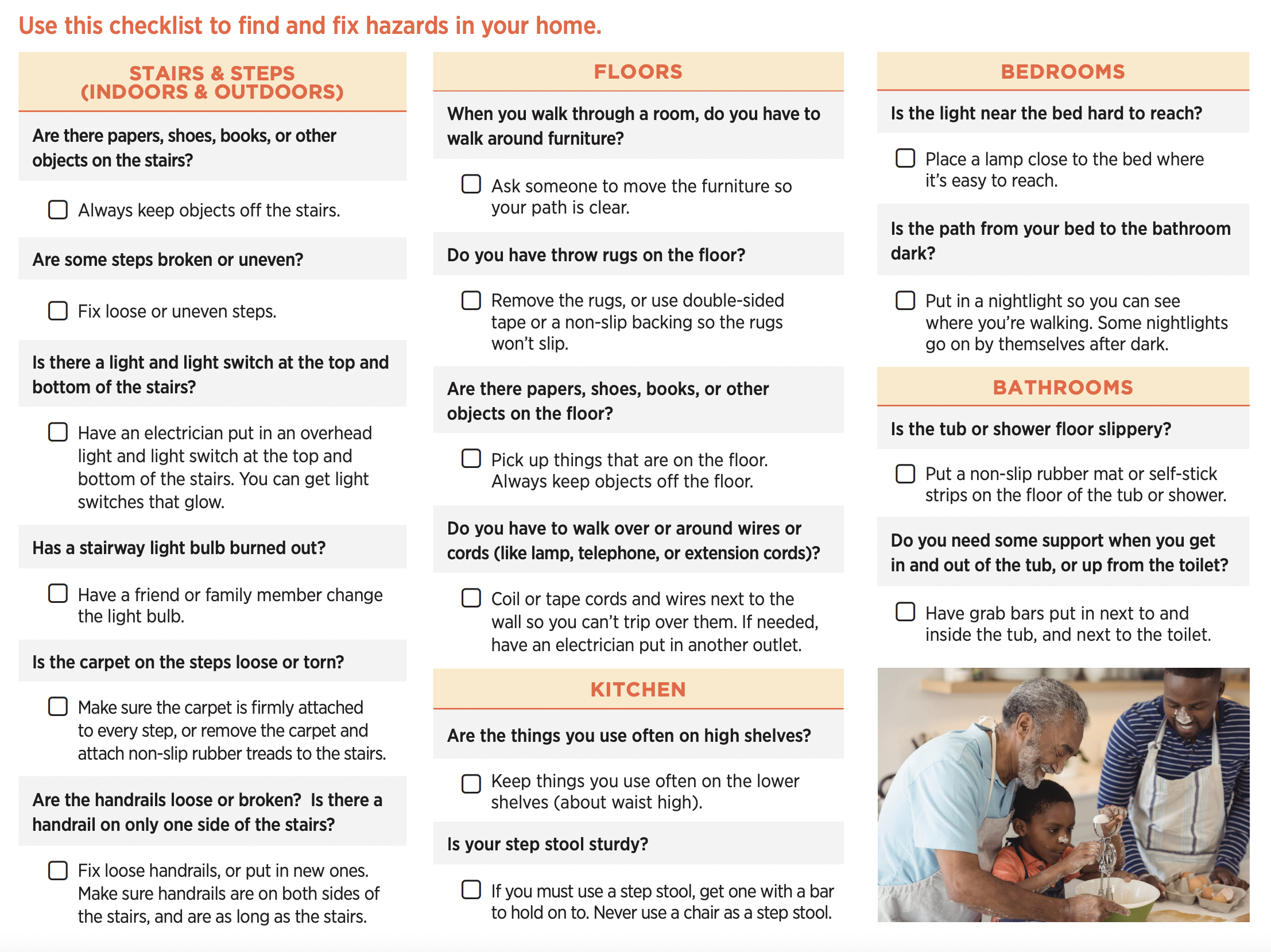Dementia Fall Risk Fundamentals Explained
Dementia Fall Risk Fundamentals Explained
Blog Article
The smart Trick of Dementia Fall Risk That Nobody is Talking About
Table of ContentsA Biased View of Dementia Fall RiskUnknown Facts About Dementia Fall RiskNot known Details About Dementia Fall Risk Getting My Dementia Fall Risk To WorkThe Single Strategy To Use For Dementia Fall Risk
You could be nervous due to the fact that you have actually had a loss prior to or due to the fact that you have actually observed you're starting to feel unstable on your feet. You could have seen adjustments to your health, or simply really feel like you're reducing a little. Whatever the reason, it isn't uncommon to end up being careful and shed confidence, and this can stop you doing the important things you used to do and make you feel more separated.If you have actually had a fall or you have actually started to feel unsteady, inform your physician even if you feel fine or else. Your physician can inspect your balance and the method you walk to see if renovations can be made. They may have the ability to refer you for a drops threat analysis or to the falls prevention solution.
This details can be obtained with meetings with the person, their caretakers, and an evaluation of their clinical documents. Begin by asking the individual concerning their background of falls, consisting of the frequency and conditions of any type of current drops. Dementia Fall Risk. Inquire regarding any wheelchair troubles they might experience, such as unstable or problem walking
Conduct a detailed evaluation of the individual's medicines, paying specific focus to those known to raise the threat of drops, such as sedatives or medicines that reduced high blood pressure. Determine if they are taking numerous medicines or if there have actually been recent changes in their medicine program. Examine the individual's home setting for prospective threats that can boost the danger of falls, such as inadequate lights, loose rugs, or absence of grab bars in the washroom.
A Biased View of Dementia Fall Risk
Guide the individual through the autumn danger evaluation type, describing each question and recording their actions precisely. Determine the overall danger rating based on the reactions offered in the assessment kind.
Regularly check the individual's development and reassess their risk of falls as needed. Give recurring education and assistance to promote safety and security and lower the danger of drops in their day-to-day living tasks.
Many researches have revealed that physical therapy can help to reduce the risk of falling in grownups ages 65 and older. In a Continue brand-new study (that considered drops threat in ladies ages 80 and older), researchers determined the financial influence of selecting physical treatment to stop falls, and they found that doing so saves $2,144, consisting of all the concealed expenses of your time, pain, missed life events, and the dollars official source spent for solutions.
More About Dementia Fall Risk
Evaluating your balance, stamina, and strolling capability. A home safety evaluation. Based on the evaluation results, your physical specialist will develop a strategy that is customized to your details demands.
Older grownups who have difficulty walking and chatting at the exact same time are at a higher danger of falling. Dementia Fall Risk. To assist boost your safety and security during day-to-day activities, your physiotherapist may develop a training program that will test you to keep standing and walking while you do an additional job. Instances include strolling or standing while counting backward, having a conversation, or lugging a bag of groceries
Your physical therapist additionally can recognize which tasks you need to stay clear of to remain safe. Community-based drops prevention programs assist people to: Minimize their anxiety of dropping. Set goals for enhancing their physical task. Make their homes much safer. Work out more to boost their strength and balance. These programs usually are led by volunteer trainers.
9 Easy Facts About Dementia Fall Risk Shown

Measles, or rubeola, is a highly transmittable, acute viral infectious illness triggered by the measles virus. Some people believe of measles as just a rash and high temperature that gets rid of up in a couple of days; nonetheless, measles can create severe wellness complications, especially in children younger than 5-years-old. The best protection against measles is the measles, mumps, and rubella (MMR) vaccination.
Falls are an usual cause of injury amongst older adults. According to the CDC, in one year alone, fall-related injuries added to over $50 billion in clinical costs (Dementia Fall Risk). In health center settings, older adults are at especially high danger of falls because their minimized movement from being restricted to a room or bed.
Dementia Fall Risk - An Overview

She has a case history of seizure condition and hypertension. She is obtaining an IV mixture and taking Gabapentin and Lasix. She has no background of falls, her gait is steady, and she invalidates with no problems. The previous registered nurse states that she calls for assistance to the restroom when she needs to go.
Instances of common loss interventions/measures consist of: Making sure a person's vital products are available. Placing the patient's bed rails up with the alarm system on. Aiding a patient while they're getting up from bed. Past understanding exactly how to utilize the Johns Hopkins Loss Danger Analysis Tool, it is essential that facilities incorporate its use right into a more comprehensive fall avoidance plan.
Report this page